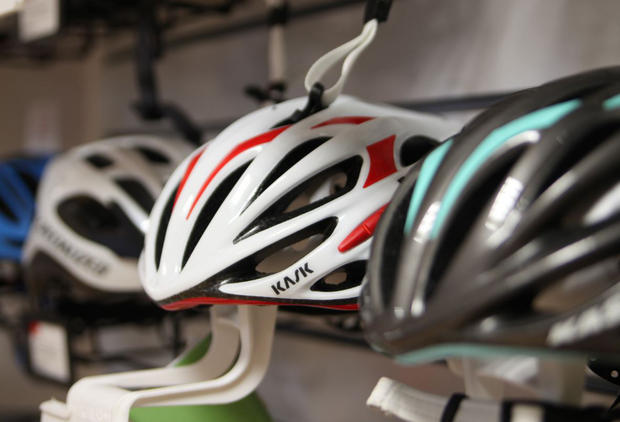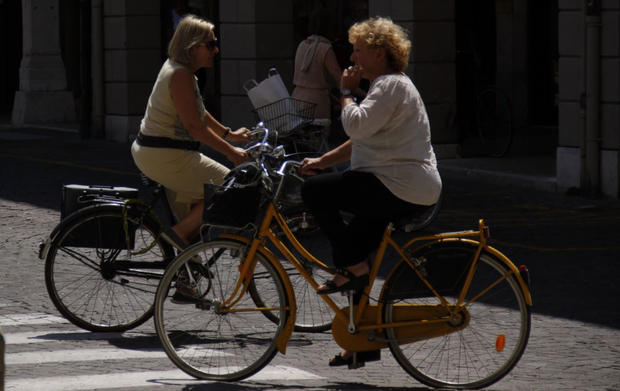Canberra cyclists may go helmet free in new ACT road safety plan

“We will engage an expert to look at options for low-speed areas … we’ll sit down and have that research done for us over the next couple of years and weigh up the relative benefits.
“If we have more people out there cycling it actually makes people safer, because cycling is more visible, there’s more people doing it and drivers become more used to having cyclists on the road.”
The helmet compulsion debate often sends people on both sides of the fence into a froth, with advocates of choice arguing that focusing on lid compulsion distracts from more effective means to keep cyclists safe – such as infrastructure and motor speed controls.

Indeed, in areas with high concentrations of cyclists, such as Amsterdam (where cyclists clock up 2 million kilometers daily) and Copenhagen, no helmet compulsion laws are in place. With a focus on investing in cycle-friendly infrastructure, over 223 million bike journeys are made annually in Amsterdam. Just 15 to 20 fatal accidents occur in the city each year and on average just a quarter of those are cyclists.
The arguement was summarised well in a recent Guardian column by Vulpine apparel founder Nick Hussey, who points to the lives and public health budget saved by active travel.
Cycle helmets, while often effective in everyday crashes not involving motor vehicles, are not specifically designed to be met with the forces associated with encounters with cars travelling at speed. Research actually shows that per million hours travelled, motorists are actually more at risk of head injuries than cyclists by a small margin.
The same Australian study concluded that mandatory helmets for motorists would save up to seventeen times more people from death than the same cycling legislation. Motorcyclists are by far the most vulnerable to head injury and helmet design here factors in the type of incident typically associated with a crash.


